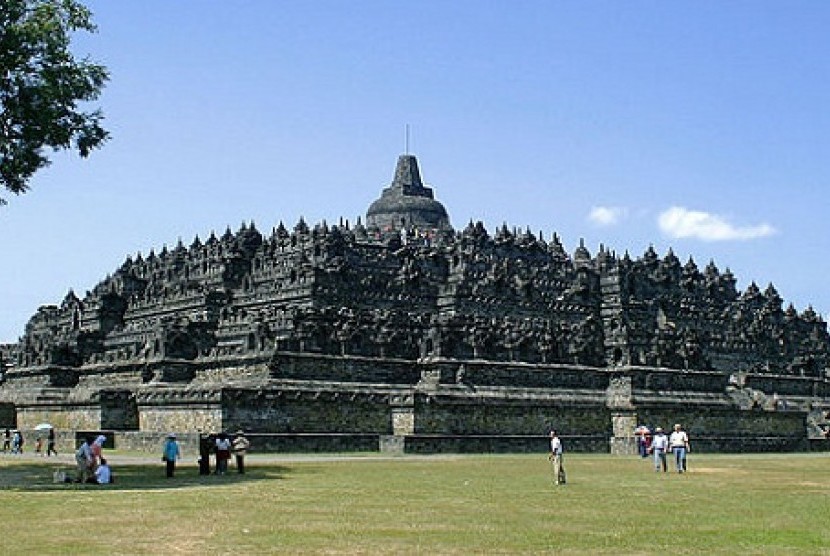REPUBLIKA.CO.ID, TEMANGGUNG -- Some 3,000 to 4,000 visitors failed to climb Borobudur Temple due to the eruption of Mt Kelud on Thursday, Feb. 13, an official said on Friday.
"Of course there is a potential loss," the unit chief of the Borobudur Tourism Park, Bambang Irianto, stated.
According to Bambang, the most important concern was that the Borobudur Temple organizer could make visitors understand about the possible dangers posed by the volcano.
Mount Kelud in the East Java province, which erupted on Thursday night, Feb.13, produced molten lava and black smoke.
The ash and sand spread to areas located far from Mount Kelud.
The rain of ash, sand, and rocks has mostly occurred on the western side of the volcano, such as in Pacitan, Ponorogo, Wonogiri, Bantul, Yogyakarta, Sleman, Kulon Progo, Purworedjo, Kebumen, Solo, Boyolali, Salatiga, and Temanggung.
Meanwhile, volcanic ash blew from east of the mountain and spread across Malang, Surabaya, Banyuwangi, and Ampenan in the West Nusa Tenggara province.
Bambang Irianto stated that PT Taman Wisata Candi Borobudur Prambanan and Ratu Boko, the temple?s organizing company, has announced temporary closure of the temples since Friday morning due to the rain of ash, which causes rocks by the temple to become covered by volcanic ash.
On Saturday and Sunday, the usual number of visitors reached some 10 thousand to 16 thousand people.
The eruption of the 1,731-meter volcano could be heard in Solo (Central Java) and Yogyakarta, some 200 km from the volcano.
Mount Kelud, located on the border of Blitar and Kediri districts, East Java Province, erupted at 10.50 pm local time. It spewed gravel and ash, reaching up to West Nusa Tenggara and West Java provinces, which are hundreds of kilometers away.
Mount Kelud`s last major eruption was in 1990, when it spewed ash and lava that killed more than 30 people and injured hundreds. In 1919, the volcano`s powerful explosion reportedly could be heard hundreds of kilometers away and claimed at least 5,160 lives.


